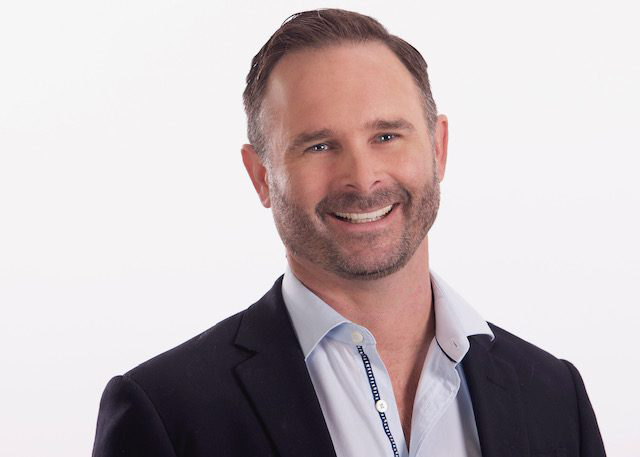Addiction recovery is a deeply personal journey that unfolds in distinct phases, each presenting unique challenges and opportunities for growth. Understanding these phases can provide hope, clarity, and realistic expectations for individuals beginning their path to sobriety and their loved ones supporting them along the way.
Recovery isn’t a linear process—it’s more like climbing a mountain with various terrains, weather conditions, and rest stops. Some days will feel easier than others, and that’s completely normal. By knowing what to expect in different phases of addiction recovery, you can better prepare yourself mentally and emotionally for the road to lasting sobriety.
SEE Purpose Center for Addiction Treatment in Bloomfield, IN, specializes in guiding individuals through these critical early phases. We offer comprehensive detox services, inpatient treatment programs, and ongoing aftercare support to ensure you have the foundation needed for long-term success.
Phase 1: Detoxification
Detoxification marks the beginning of your recovery journey and involves clearing your body of addictive substances. This medical process typically lasts anywhere from a few days to several weeks, depending on the substance, duration of use, and individual factors like overall health and metabolism.
During detox, your body works to eliminate toxins while adjusting to functioning without the substance it has become dependent on. This adjustment period often brings uncomfortable withdrawal symptoms that can include:1
- Nausea
- Sweating
- Tremors
- Anxiety
- Depression
- Insomnia
- Intense cravings
The severity and duration of these symptoms vary significantly based on individual circumstances.
Medical supervision during detox is crucial for both safety and comfort. Healthcare professionals can monitor vital signs, provide medications to ease withdrawal symptoms, and intervene quickly if complications arise. Some withdrawal syndromes, particularly from alcohol or benzodiazepines, can be life-threatening without proper medical care.2
The physical discomfort of detox can feel overwhelming, but remember that these symptoms are temporary. Your body is beginning to heal, and each day brings you closer to feeling physically stable again.
Phase 2: Early Recovery
Early recovery typically encompasses the first 90 days after detox, though this timeframe can extend to six months for some individuals. During this phase, your body continues healing while your brain begins rewiring itself to function without addictive substances. During this time period, it’s essential to focus on establishing abstinence and sobriety.3
Establishing a strong support system becomes paramount during early recovery. This might include family members, friends, sponsors, therapists, or fellow recovery group members. Having people who understand your journey and can offer encouragement during difficult moments provides invaluable strength when motivation wavers.
Therapy and counseling typically begin during this phase, helping you understand the underlying factors that contributed to your addiction. You’ll start learning healthy coping strategies to replace old destructive patterns.
Early recovery often feels emotionally turbulent. You might experience mood swings, anxiety, depression, or difficulty concentrating as your brain chemistry stabilizes. These emotional challenges are normal parts of the healing process, not signs of failure.
Phase 3: Active Addiction Treatment
Active addiction treatment involves diving deeper into the therapeutic work that addresses the root causes of addiction. This phase typically involves various treatment modalities tailored to your specific needs and circumstances. Some people find that inpatient treatment or intensive outpatient treatment can help immensely during this phase.
Therapy sessions focus on identifying triggers, developing personalized coping strategies, and working through trauma or mental health issues that may have contributed to your addiction. Some common types of addiction treatment therapies you might encounter include:
- Cognitive Behavioral Therapy (CBT)
- Dialectical Behavior Therapy (DBT)
- Motivational Interviewing
- Group therapy
- Family therapy
- EMDR and PTSD therapy
In addition to therapy and addressing co-occurring disorders, medication-assisted treatment (MAT) may be recommended for certain types of addictions. MAT involves using FDA-approved medications in combination with behavioral therapy to reduce the risk of relapse and help with your cravings.4
During this phase, you’ll set concrete goals for your recovery and life beyond addiction. You’ll also learn to recognize situations, emotions, or people that might tempt you to use substances and develop specific strategies for managing these challenges.
Phase 4: Maintenance
Continued therapy remains important in the maintenance phase of recovery, though sessions might become less frequent as you develop greater stability and confidence. Many people continue seeing therapists monthly or quarterly to check in, process challenges, and continue personal growth work. Outpatient treatment is vital for some people, and can even help prevent relapse during addiction recovery.5
Support groups can also be a good addition to your maintenance. Whether through 12-step programs, SMART Recovery, or other peer support networks, regular group participation provides ongoing accountability and community connection.
Relapse prevention becomes a primary focus during maintenance. You’ll refine your understanding of personal warning signs and strengthen your toolkit of coping strategies. Learning to navigate real-world stresses while maintaining sobriety requires ongoing practice and adjustment.
Building Your Foundation for Lasting Sobriety
Recovery is a lifelong journey that becomes more rewarding with each passing phase. While the early stages may feel overwhelming, remember that millions of people have successfully navigated this path before you.
Each phase builds upon the previous one, creating a strong foundation for lasting sobriety. The skills you learn, relationships you build, and personal growth you achieve during each stage contribute to your overall resilience and quality of life.
If you or someone you love is ready to begin this transformative journey, SEE Purpose Center for Addiction Treatment in Bloomfield, IN, offers comprehensive support through every phase of recovery. From medically supervised detox to long-term aftercare planning, our experienced team provides the guidance and resources needed to build a successful recovery. Call us today to learn more at 1-866-476-2634.
Frequently Asked Questions
How long does each phase of recovery typically last?
Recovery phases vary significantly among individuals. Detox usually lasts 3-10 days, early recovery spans 3-6 months, active treatment can continue for 6-12 months or longer, maintenance is ongoing, and long-term recovery begins around one year of sobriety. However, these timelines are flexible and should be adjusted based on individual progress and needs.
Is it normal to struggle during certain phases more than others?
Absolutely. Most people find certain phases more challenging than others based on their personality, circumstances, and type of addiction. Early recovery and the transition to maintenance are commonly difficult periods. Remember that struggling doesn’t mean you’re failing—it means you’re human and working through a complex process.
What happens if I relapse during one of these phases?
Relapse doesn’t erase your progress or mean you’re starting over completely. Many people experience setbacks during recovery, particularly in early phases. The important thing is to seek help immediately, learn from the experience, and recommit to your recovery plan. Each attempt at sobriety builds knowledge and resilience for future success.
Do I need professional help for all phases of recovery?
While the level of professional support needed varies by individual and phase, most people benefit from some form of professional guidance throughout their recovery journey. Detox almost always requires medical supervision, and ongoing therapy or counseling provides valuable support during other phases. Professional help doesn’t indicate weakness—it demonstrates commitment to your recovery.
How do I know when I’m ready to move from one phase to the next?
Phase transitions aren’t always clearly defined, and readiness depends on multiple factors including physical stability, emotional regulation, coping skills development, and support system strength. Your treatment team, therapist, or support group can help assess your readiness and ensure you’re not rushing the process or staying stuck in one phase too long.
What role does family play in different recovery phases?
Family involvement can be beneficial throughout recovery, though their role may evolve across phases. During detox and early recovery, family might focus on providing emotional support and learning about addiction. In later phases, they might participate in family therapy or support their loved one’s new healthy lifestyle. However, family involvement should always respect boundaries and support the individual’s recovery goals.
Can I work or go to school during different phases of recovery?
Work and education participation depends on individual circumstances and recovery phase. Many people can maintain work or school commitments during outpatient treatment, while others might need temporary leave during intensive treatment phases. Inpatient treatment typically requires time away from regular obligations, but many programs help coordinate with employers or schools to minimize disruption.




